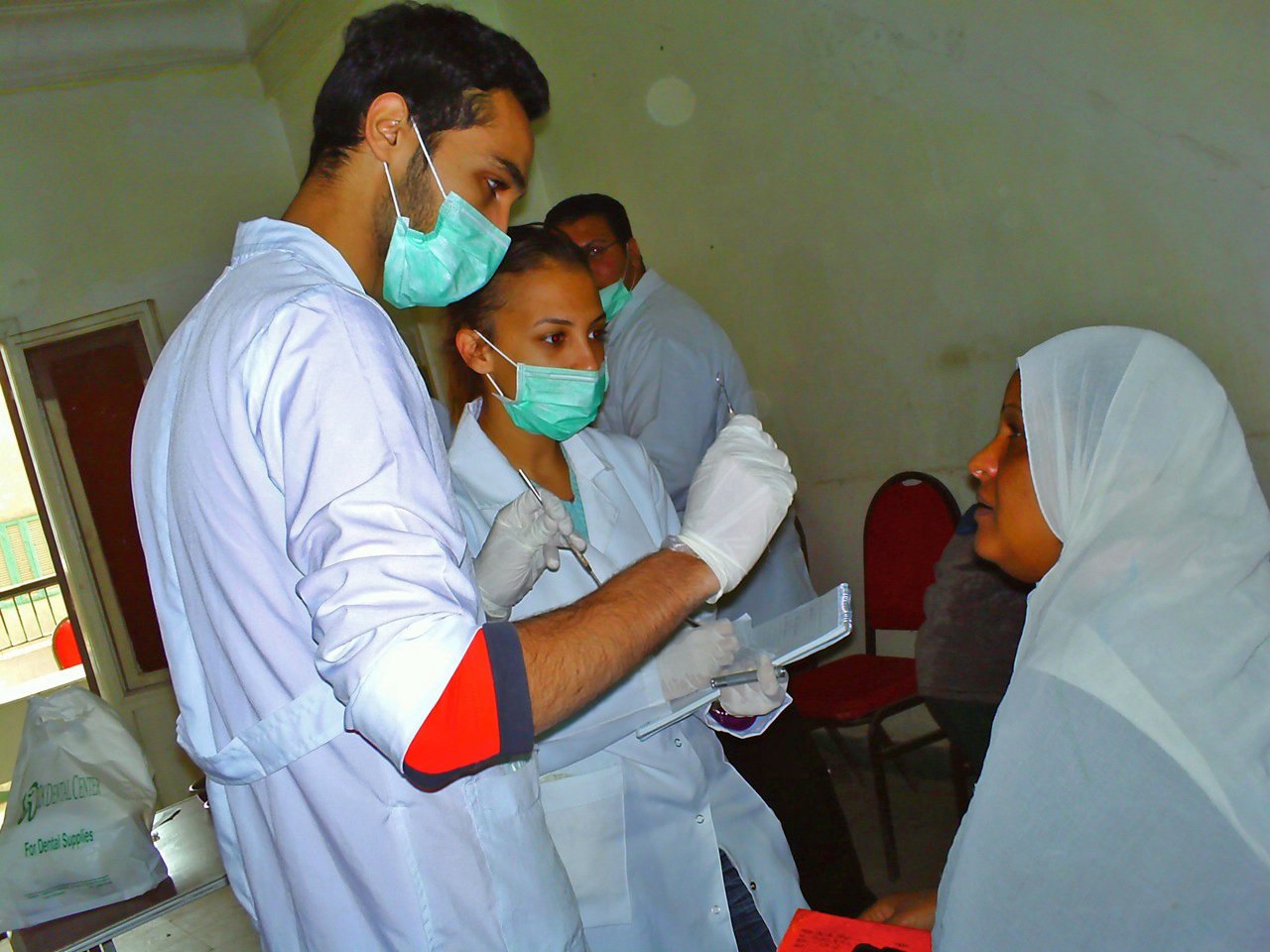“A lack of equipment, nurses, and doctors has rendered the nation’s hospitals totally dysfunctional,” said Khairy Abdel Dayem, chairman of Egypt’s Medical Association. “The few patients who get [decent] medical treatment have to pay for it.”
The country has a very high prevalence of chronic diseases, including liver infections, cirrhosis and hepatocellular carcinoma, according to the World Health Organization. It also has higher infection rates for invasive medical, dental, or paramedic procedures than many other countries with comparable socio-economic conditions and hygiene standards, says WHO.
“Hospitals receive huge numbers of patients every day, placing an immense strain on the national health budget,” said Mohamed Abdel Hamid, a senior Medical Association member.
Health spending amounted to 3.9 percent (4.5 million pounds or US$750 million) of Egypt’s total budget in 2011, according to one newspaper (Arabic). Abdel Hamid and his colleagues are lobbying to raise health expenditure to 15 percent of the budget, but this could be wishful thinking, given projected budget deficits for next year due to election expenses and increased payments to state employees.
“Health reform cannot happen without money,” said Abdel Hamid. “Money will enable health officials to buy equipment, medicines, improve conditions inside hospitals, and train doctors and nurses. A low health budget for the next fiscal year just means this country’s health failings will continue for another year.”
The situation is made worse by the fact that nearly 40 percent of Egypt’s 83 million people are not covered by the national health service because only people who work for the government and the private sector have state health insurance. Their subscription is debited from their salaries. While that could change if a proposed new health insurance law is passed by parliament, experts say the issue of funding will remain.
Kidney patients
Kidney dialysis patients are one group getting a poor service. Last month 30 contracted hepatitis C after undergoing dialysis at a hospital in the industrial city of Kafr Al Zayat, 60km north of Cairo, according to the head of the parliamentary health committee, Akram Al Shaer.
There are 44,000 kidney failure patients in Egypt, according to Assistant Health Minister Abdel Hamid Abaza, and the government spends 900 million Egyptian pounds (US$150 million) annually treating them. But Al Shaer says the treatment methods in hospital leave the patients at risk of hepatitis infection.
Another medical expert, Sherif Murad, said because dialysis equipment is rarely cleaned or sterilized, haemodialysis becomes more risky. “This is why we should seek other alternatives,” said Murad, a kidney disease professor from Ain Shams University.
Lack of insulin for diabetes sufferers
An acute medicine shortage has plagued Egypt for months now, with little action from the government. Manufacturers cite rising raw material prices in international markets and falling medicine prices in local markets, saying government controls on medicine prices have hurt the market.
Diabetic patients have been complaining about insulin shortages in state-run hospitals. One afflicted mother told a local newspaper she had been going to Abulreish Hospital in Cairo for months to get insulin for her diabetic son.
“But every time I go, they [hospital officials] tell me that they do not have this insulin,” the mother told Al Midan newspaper. “This means that I have to buy the insulin from the pharmacy outside, which makes the whole thing intolerably costly to me.”
There are five million diabetes sufferers in Egypt, of whom about 60 percent need insulin including 400,000 children, according to Ashraf Ismail, head of the Diabetes Institute, Egypt’s main medical institution offering treatment to diabetes sufferers. “Most of these children get the disease due to genetic reasons,” Ismail said.
ae/eo/cb
This article was produced by IRIN News while it was part of the United Nations Office for the Coordination of Humanitarian Affairs. Please send queries on copyright or liability to the UN. For more information: https://shop.un.org/rights-permissions





